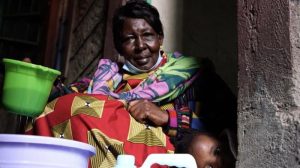Kenya continues to grapple with challenges in human development, as highlighted in the United Nations 2023/24 Human Development Report. Despite progress in some areas, the country still falls behind compared to some of the world’s most developed nations.

Photo courtesy
According to the report, Kenya ranks 146th out of 193 countries globally on the Human Development Index (HDI). This places it among countries categorized as having achieved medium human development. While this position reflects an improvement from previous years, it underscores the ongoing disparities in health, education, and living standards within the country.
Dr. Susan, a development analyst, emphasizes this point, stating, “The human development index value has moved up by almost 48% between 1990 and 2023. This does give us pause for reflection that there are things that are working.”
However, amid these challenges, there is a glimmer of hope. The report notes that Kenya ranks highest among East African countries on the UN index, signaling relative progress compared to its regional peers. Dr. James, a policy maker, affirms this, saying, “We are encouraged that Kenya is leading among East African countries. This shows that our efforts are yielding results.”
The report also sheds light on global disparities, with Switzerland, Norway, and Iceland leading the pack in the very high human development category. On the other end of the spectrum, countries like the Central African Republic, South Sudan, and Somalia face significant challenges in human development.
“One of the key takeaways from the report is the importance of identifying homegrown solutions to address the inequality gap in Kenya,” notes Professor Wangari, a development practitioner. “We need tailored approaches that address the unique socio-economic context of our country.”
In the face of these challenges, policymakers, analysts, and development practitioners must focus on strategies that have shown efficacy. “Focusing on what has worked remains more important,” remarks Dr. Susan. “We must learn from past successes and failures to chart a path towards sustainable development.”
The report, titled “Breaking the Gridlock: Reimagining Cooperation in a Polarized World,” underscores the urgency of addressing global inequalities and fostering cooperation. Despite the daunting challenges ahead, there is optimism that informed choices and collaborative efforts can pave the way for a more equitable and prosperous future for Kenya and the world at large.
“As we navigate these complexities, it is imperative that we remain vigilant and proactive in our pursuit of human development,” concludes Dr. James. “By embracing innovation, inclusivity, and solidarity, Kenya can overcome its challenges and emerge stronger on the global stage.”
In conclusion, while Kenya still faces significant hurdles in human development, there are signs of progress and opportunities for positive change. By leveraging its strengths and learning from global best practices, Kenya can accelerate its journey towards a more prosperous and equitable society.
Story By
Anthony Juma
